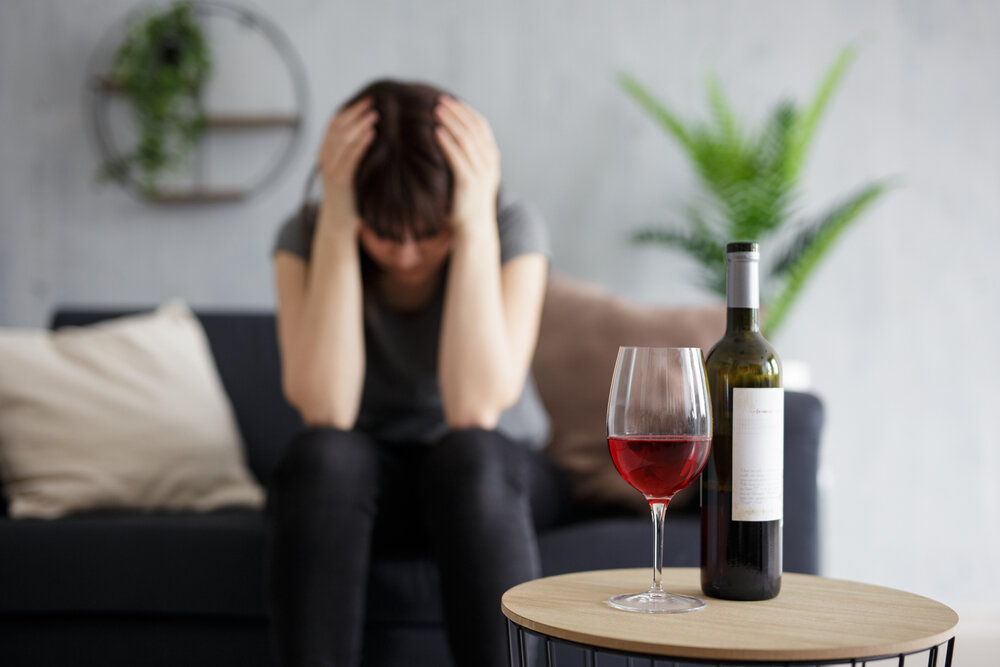Table of Contents
TL;DR:
- Addiction is a chronic disease and relapse can happen as a result of changes in the brain.
- Triggers like people, places, and things associated with past use can cause cravings.
- Stress, even positive stress, and unresolved trauma can increase the risk of relapse.
- Denial, such as downplaying the problem or refusing help, makes relapse more likely.
- Recovery is possible by identifying triggers, building coping skills, and finding support.
It’s a question that often leaves people puzzled: why do addicts relapse when things are good?
We usually connect relapse with tough times, stress, or hitting rock bottom. So, it feels logical to think that when someone has a steady job, loving relationships, and newfound happiness, addiction will lose its hold.
But the truth is more complicated.
Relapse can happen even when life is on the upswing, leaving both the person and their loved ones feeling confused and discouraged.
Let’s explore more about this aspect of addiction recovery.
Why Relapse Happens
To understand why relapse can happen even when things seem to be going well, it helps to look at the nature of addiction itself.
Addiction and relapse are deeply connected. Addiction isn’t just a bad habit or a lack of willpower—it’s a chronic disease that changes how the brain works. Even when life is going smoothly, those underlying brain changes are still there.
So, why do people relapse?
It’s not about weakness or choosing to go back to harmful habits. Addiction rewires the brain to crave the substance or behavior, and those cravings can be incredibly strong, even after a long time without using.
It’s similar to managing a chronic illness like diabetes. Even when blood sugar is under control, a diabetic still has to stay on top of their health. In the same way, someone recovering from addiction is always in recovery.
Psychological Factors
While addiction has a strong biological side, psychological factors are a big part of relapse too. So, why do drug addicts relapse even when things are going well? It’s often because some deeper emotional issues haven’t been fully worked through. Some examples include:
Unresolved Trauma or Emotional Pain
Past trauma, grief, or mental health challenges like anxiety or depression often play a role in addiction. Even when life seems good, these unresolved issues can stick around, leaving someone more vulnerable.
Stress and Overwhelm
It might sound surprising, but positive changes can also bring stress. A new job, relationship, or promotion can add pressure and feel overwhelming, triggering old coping habits.
Complacency and Overconfidence
When things are going smoothly, it’s easy to get complacent or overconfident in recovery. This might mean skipping support groups, therapy, or other healthy routines that are key to staying sober.
Addressing these psychological factors is crucial for long-term recovery. Therapy, support groups, and mindfulness can help build healthy coping skills.
Environmental Triggers
Even when internal factors are well-managed, the environment can still be full of triggers that make relapse more likely. Here are some common ones:
People
Being around those who are still using or who normalize substance use can be a huge trigger. Even friends who mean well or family who don’t fully understand addiction might unintentionally create a risky situation.
Places
Certain locations tied to past drug use, like specific bars, neighborhoods, or even rooms in a house, can bring back strong cravings.
Things
Objects linked to drug use, like paraphernalia, or even specific smells or sounds, can act as powerful reminders and triggers.
Social Pressures
Social events with alcohol or drugs can be tough for someone in recovery. Even subtle pressure to join in can make relapse more likely.
Recognizing and avoiding these environmental triggers is crucial for preventing relapse. This might mean finding new social circles, avoiding certain places, and building coping strategies.
The Role of Denial
Denial is a powerful defense mechanism that can sabotage recovery, even when things are going well. Here are some ways denial can manifest:
- Minimizing Past Problems: Downplaying the severity of past addiction or its consequences. This might involve thinking, “I wasn’t that bad,” or “I can handle it this time.”
- Ignoring Red Flags: Overlooking warning signs like changes in mood, sleep patterns, or social interactions that might signal an impending relapse.
- Refusing Help: Rejecting support from loved ones, therapists, or support groups often because they think they don’t need it or can handle things on their own.
- Blaming External Factors: Pointing to outside reasons for slip-ups or cravings instead of owning their actions and choices.
Overcoming denial takes honesty, self-awareness, and being open to support. Talking to a therapist or joining support groups can help identify and challenge denial, giving a more grounded perspective on the recovery journey.
Preventing Relapse
Relapse is a common part of addiction recovery, but it’s not inevitable. By understanding what leads to relapse and taking proactive steps, people can lower their risk and create a strong foundation for lasting sobriety.
Here are some practical strategies to prevent relapse:
Identify Your Triggers
Self-awareness is crucial. Addicts often relapse due to triggers they haven’t recognized or addressed. Take time to recognize high-risk situations, emotions, or environments that might make you vulnerable.
Find Healthy Coping Tools
Addiction often starts as a way to deal with stress or tough emotions. Recovery means building better coping strategies—like exercise, mindfulness, hobbies, spending time in nature, or leaning on supportive people.
Lean on a Support System
Surround yourself with people who uplift you. Family, friends, therapists, sponsors, or recovery peers can all help. Support groups like Alcoholics Anonymous (AA) or Narcotics Anonymous (NA) are great for community and accountability.
Continue Therapy and Aftercare
Therapy helps you work through underlying issues and build new skills. Continuing therapy or aftercare programs after treatment can make a big difference in avoiding relapse.
Hope and Healing in the Face of Relapse
Overall, it’s important to remember that relapse isn’t a failure. It’s just a potential setback on the road to sobriety. By understanding why relapse happens, even when things seem good, you can create strategies to handle challenges and stay committed to recovery.
If you or someone you care about is struggling with addiction, help is always available. Don’t let the fear of relapse hold you back. Take that first step toward recovery today.
Reach out to Infinite Recovery and start building a healthier, happier future. Our compassionate team is here to offer personalized care and support every step of the way.

















